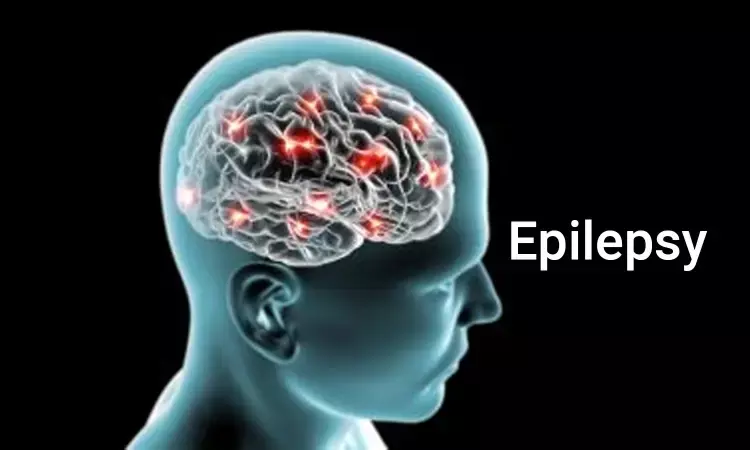- Home
- Medical news & Guidelines
- Anesthesiology
- Cardiology and CTVS
- Critical Care
- Dentistry
- Dermatology
- Diabetes and Endocrinology
- ENT
- Gastroenterology
- Medicine
- Nephrology
- Neurology
- Obstretics-Gynaecology
- Oncology
- Ophthalmology
- Orthopaedics
- Pediatrics-Neonatology
- Psychiatry
- Pulmonology
- Radiology
- Surgery
- Urology
- Laboratory Medicine
- Diet
- Nursing
- Paramedical
- Physiotherapy
- Health news
- Fact Check
- Bone Health Fact Check
- Brain Health Fact Check
- Cancer Related Fact Check
- Child Care Fact Check
- Dental and oral health fact check
- Diabetes and metabolic health fact check
- Diet and Nutrition Fact Check
- Eye and ENT Care Fact Check
- Fitness fact check
- Gut health fact check
- Heart health fact check
- Kidney health fact check
- Medical education fact check
- Men's health fact check
- Respiratory fact check
- Skin and hair care fact check
- Vaccine and Immunization fact check
- Women's health fact check
- AYUSH
- State News
- Andaman and Nicobar Islands
- Andhra Pradesh
- Arunachal Pradesh
- Assam
- Bihar
- Chandigarh
- Chattisgarh
- Dadra and Nagar Haveli
- Daman and Diu
- Delhi
- Goa
- Gujarat
- Haryana
- Himachal Pradesh
- Jammu & Kashmir
- Jharkhand
- Karnataka
- Kerala
- Ladakh
- Lakshadweep
- Madhya Pradesh
- Maharashtra
- Manipur
- Meghalaya
- Mizoram
- Nagaland
- Odisha
- Puducherry
- Punjab
- Rajasthan
- Sikkim
- Tamil Nadu
- Telangana
- Tripura
- Uttar Pradesh
- Uttrakhand
- West Bengal
- Medical Education
- Industry
Listening to Mozart's music may reduce seizure frequency in epilepsy

Dr. Marjan Rafiee and Dr. Taufik Valiante of the Krembil Brain Institute at Toronto Western Hospital have found in a new study that a Mozart music composition may reduce seizure frequency in patients with epilepsy.
The results of the research study, "The Rhyme and Rhythm of Music in Epilepsy," were published in the international journal Epilepsia Open.
It looks at the effects of the Mozart melody, "Sonata for Two Pianos in D Major, K. 448" on reducing seizures, as compared to another auditory stimulus -- a scrambled version of the original Mozart composition, with similar mathematical features, but shuffled randomly and lacking any rhythmicity.
"In the past 15 to 20 years, we have learned a lot about how listening to one of Mozart's compositions in individuals with epilepsy appears to demonstrate a reduction in seizure frequency," says Dr. Marjan Rafiee, lead author on the study. "But, one of the questions that still needed to be answered was whether individuals would show a similar reduction in seizure frequency by listening to another auditory stimulus -- a control piece -- as compared to Mozart."
The researchers recruited 13 patients to participate in the novel, year-long study. After three months of a baseline period, half of the patients listened to Mozart's Sonata once daily for three months, then switched to the scrambled version for three months. The others started the intervention by listening to the scrambled version for three months, then switched to daily listening of Mozart.
Patients kept "seizure diaries" to document their seizure frequency during the intervention. Their medications were kept unchanged during the course of the study.
"Our results showed daily listening to the first movement of Mozart K.448 was associated with reducing seizure frequency in adult individuals with epilepsy," says Dr. Rafiee. "This suggests that daily Mozart listening may be considered as a supplemental therapeutic option to reduce seizures in individuals with epilepsy."
Epilepsy is the most common serious neurological disorder in the world, affecting approximately 300,000 Canadians and 50 million people worldwide.
Many experience debilitating seizures. The treatment is often one or more anti-seizure medications. But for 30 per cent of patients, the medications are not effective in controlling their seizures.
"As a surgeon, I have the pleasure of seeing individuals benefit from surgery, however I also know well those individuals for whom surgery is not an option, or those who have not benefitted from surgery, so, we are always looking for ways to improve symptom control, and improve quality of life for those with epilepsy," says Dr. Taufik Valiante, senior author of the study and the Director of the Surgical Epilepsy Program at Krembil Brain Institute at UHN and co-Director of CRANIA.
"Like all research, ours raises a lot of questions that we are excited to continue to answer with further research and support from the epilepsy community."
While these results are promising, the next step is to conduct larger studies with more patients, over a longer period of time.
Hina Zahid Joined Medical Dialogue in 2017 with a passion to work as a Reporter. She coordinates with various national and international journals and association and covers all the stories related to Medical guidelines, Medical Journals, rare medical surgeries as well as all the updates in the medical field. Email: editorial@medicaldialogues.in. Contact no. 011-43720751
Dr Kamal Kant Kohli-MBBS, DTCD- a chest specialist with more than 30 years of practice and a flair for writing clinical articles, Dr Kamal Kant Kohli joined Medical Dialogues as a Chief Editor of Medical News. Besides writing articles, as an editor, he proofreads and verifies all the medical content published on Medical Dialogues including those coming from journals, studies,medical conferences,guidelines etc. Email: drkohli@medicaldialogues.in. Contact no. 011-43720751


